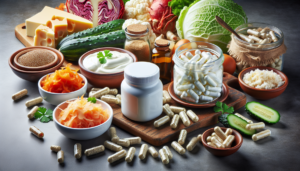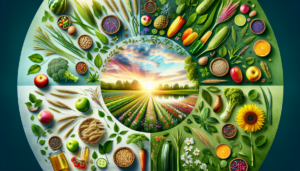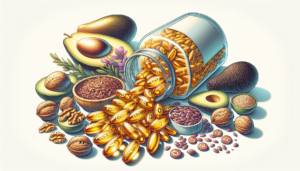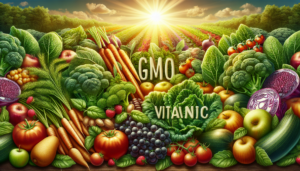Fueling Workouts: Non-GMO Superfoods You Should Try
Fueling Workouts: Non-GMO Superfoods You Should Try
Understanding Superfoods and Their Importance
Superfoods are nutrient-rich foods that provide significant health benefits. They are often packed with antioxidants, vitamins, minerals, and fatty acids, making them excellent choices for enhancing physical performance, recovery, and overall health. Non-GMO (Genetically Modified Organism) superfoods are not only beneficial but also ensure that you’re consuming food in its most natural form. As athletes or fitness enthusiasts, integrating non-GMO superfoods into your diet can enhance energy levels, endurance, and recovery.
Key Benefits of Fueling with Non-GMO Superfoods
-
Natural Energy Sources: Non-GMO superfoods are often more energetic than processed counterparts, providing sustained energy without the crash associated with high-sugar foods.
-
Enhanced Recovery: These foods, rich in antioxidants and anti-inflammatory properties, help reduce muscle soreness and fatigue post-workout.
-
Better Digestion: Many superfoods are also high in fiber, aiding in digestion and nutrient absorption, crucial for overall health and recovery.
-
Support for Immune Function: Physical activity can stress the immune system. Non-GMO superfoods can reinforce immune responses, keeping you healthy and ready to train.
- Sustainable Eating: Choosing non-GMO foods supports sustainable agricultural practices, which is beneficial for long-term health.
Top Non-GMO Superfoods to Enhance Your Workouts
-
Quinoa
- Nutritional Profile: Quinoa is a complete protein containing all nine essential amino acids. It’s high in magnesium and offers a good source of iron.
- Benefits for Athletes: It provides slow-releasing carbohydrates for sustained energy. Quinoa’s high fiber content aids digestion, making it easier for the body to absorb nutrients needed for recovery.
-
Chia Seeds
- Nutritional Profile: Loaded with omega-3 fatty acids, protein, and fiber, chia seeds are extremely nutrient-dense.
- Benefits for Athletes: Chia seeds help in hydration and provide quick energy through carbohydrates. Their high fiber content allows for gradual sugar absorption into the bloodstream.
-
Spirulina
- Nutritional Profile: A blue-green algae that is rich in protein, B vitamins, iron, and antioxidants.
- Benefits for Athletes: Spirulina can enhance endurance by improving muscle strength and recovery. It’s also known to decrease exercise-induced oxidative damage.
-
Acai Berries
- Nutritional Profile: High in antioxidants, particularly anthocyanins, which help combat oxidative stress.
- Benefits for Athletes: Acai can enhance muscle recovery and performance. They can also help reduce inflammation and improve cardiovascular health.
-
Sweet Potatoes
- Nutritional Profile: Rich in carbohydrates, fiber, vitamins A and C, and various minerals.
- Benefits for Athletes: They provide long-lasting energy for endurance activities, support immune function, and might help in muscle recovery.
-
Kale
- Nutritional Profile: An excellent source of vitamins K, C, and A, as well as antioxidants and fiber.
- Benefits for Athletes: Kale’s high iron content supports increased oxygen transport to muscle tissues during workouts, enhancing physical performance.
-
Beets
- Nutritional Profile: Rich in nitrates, vitamins A, C, and folate.
- Benefits for Athletes: Beets have been shown to improve blood flow and lower blood pressure, which can enhance endurance and athletic performance.
-
Maca Root
- Nutritional Profile: Contains a rich array of amino acids, vitamins, and minerals, including calcium and iron.
- Benefits for Athletes: Maca helps in boosting energy and stamina, and it’s also known for enhancing mood, beneficial during intense training.
-
Hemp Seeds
- Nutritional Profile: High in protein, omega-3 and omega-6 fatty acids, and essential amino acids.
- Benefits for Athletes: Hemp seeds support muscle recovery and joint health due to their anti-inflammatory properties and are an excellent post-workout snack.
-
Berries (Blueberries, Raspberries, and Strawberries)
- Nutritional Profile: High in antioxidants, fiber, vitamins C and K, and low in calories.
- Benefits for Athletes: Berries can reduce muscle inflammation and help with quicker recovery times post-exercise.
-
Pumpkin Seeds
- Nutritional Profile: A great source of magnesium, zinc, and antioxidants.
- Benefits for Athletes: Pumpkin seeds can enhance muscle recovery and energy utilization, making them an ideal pre- or post-workout snack.
- Oats
- Nutritional Profile: Packed with carbohydrates, fiber, and protein.
- Benefits for Athletes: Oats provide sustained energy release thanks to their low glycemic index. They are also high in beta-glucan, which has been linked to improved cardiovascular health.
Creative Ways to Incorporate Non-GMO Superfoods into Your Diet
To maximize the benefits of these superfoods, consider incorporating them into your daily meals and snacks creatively:
-
Smoothies: Combine spinach or kale with fruits such as bananas and berries. Add chia seeds or spirulina for an energy-boosting drink.
-
Overnight Oats: Mix non-GMO oats with almond milk, yogurt, and your favorite fruits. Add a scoop of protein powder or maca root for extra nutrition.
-
Salads: Toss in various superfoods like quinoa, pumpkin seeds, and avocado for a nutrient-dense salad that fuels performance.
-
Energy Balls: Blend dates, nuts, chia seeds, and cocoa powder to create energy bites that are great pre or post-workout.
-
Soups: Utilize sweet potatoes and beets in a hearty soup, seasoned with herbs and spices for added flavor and nutrients.
-
Chia Pudding: Make a pudding by soaking chia seeds in almond milk overnight, then mixing in vanilla and your choice of fruit.
- Trail Mix: Combine nuts, seeds, and dried fruits, including acai powder for an antioxidant-packed snack.
Pairing Non-GMO Superfoods with Proper Hydration
In addition to incorporating non-GMO superfoods into your diet, it is crucial to stay hydrated. Proper hydration is essential for optimal performance, aiding in muscle recovery and overall bodily function. Consider electrolyte-rich drinks that utilize natural ingredients and avoid processed sugars. Coconut water, for instance, is a great natural source of electrolytes and keeps you hydrated without the added chemicals.
Meal Timing for Optimal Performance
Understanding when to eat is as important as what to eat. Ideally, you should consume a meal or snack containing non-GMO superfoods 30 to 60 minutes before a workout to ensure you’re properly fueled. After your workout, aim to refuel within 30 minutes to replenish glycogen stores and assist muscle recovery.
Conclusion
Superfoods not only fuel your workouts but also enhance your overall health and recovery when chosen correctly and consumed in their non-GMO forms. By incorporating a variety of these nutrient-dense foods into your diet, you can support your fitness journey and take your workouts to the next level. Whether you’re mixing them in smoothies, tossing them in salads, or creating delicious snacks, non-GMO superfoods can play a pivotal role in achieving your fitness goals.








